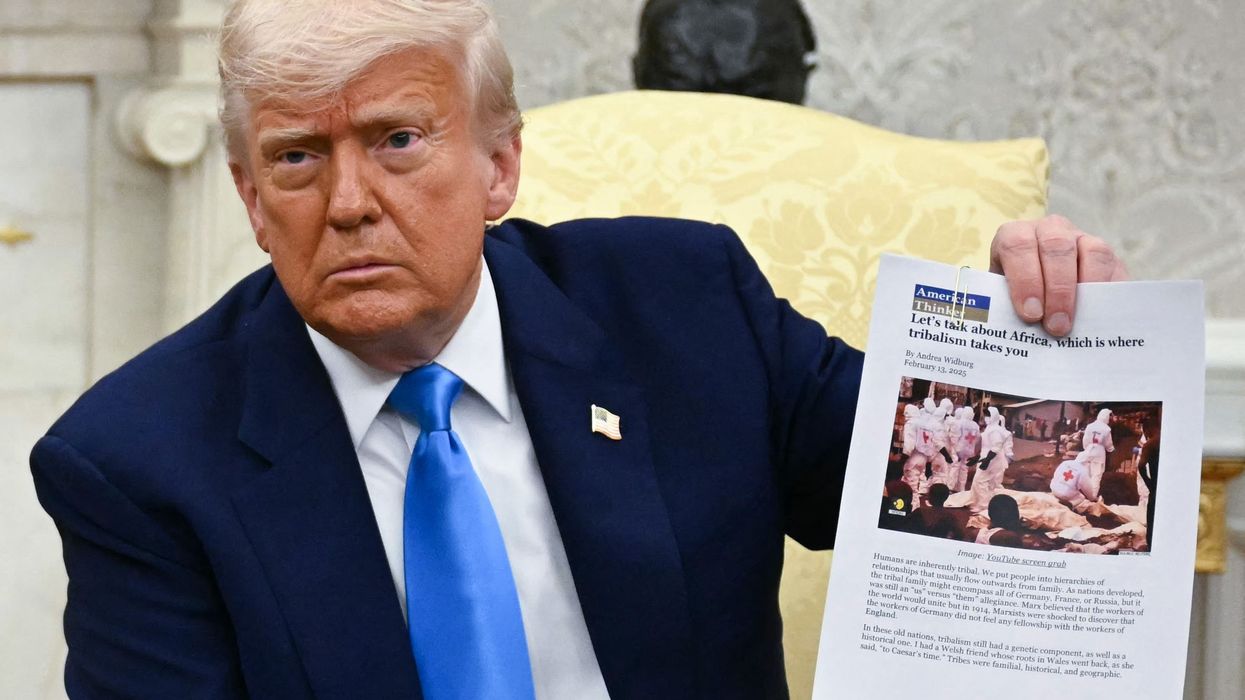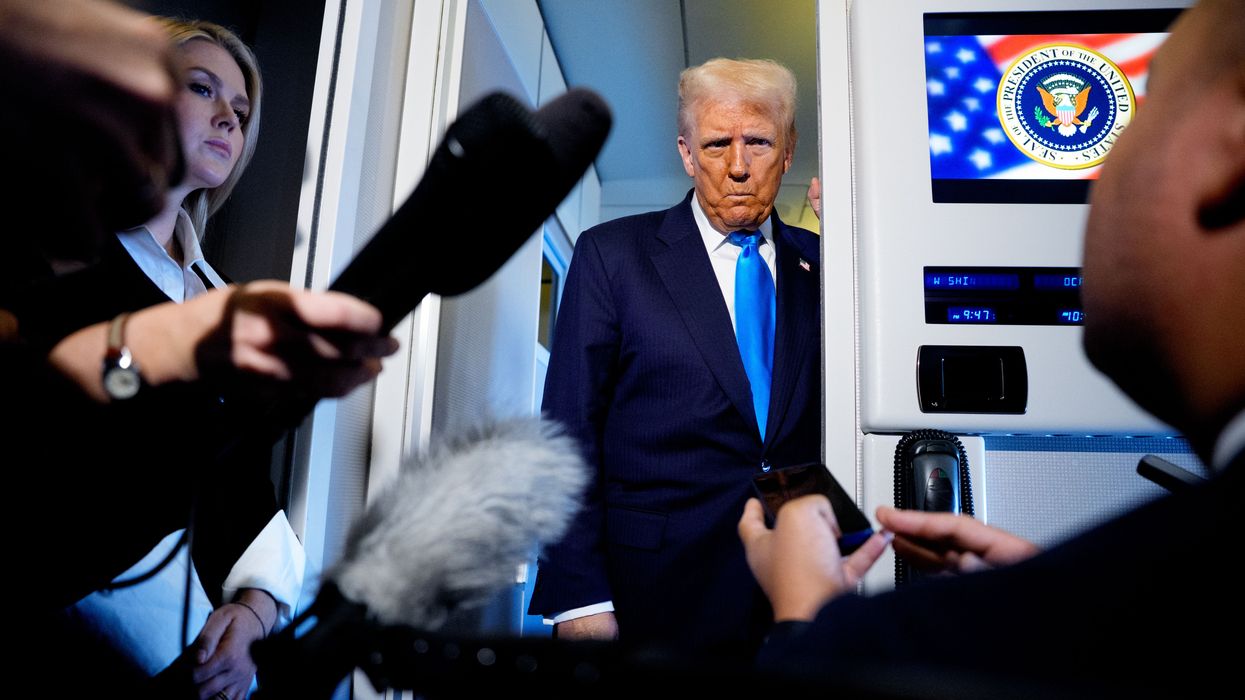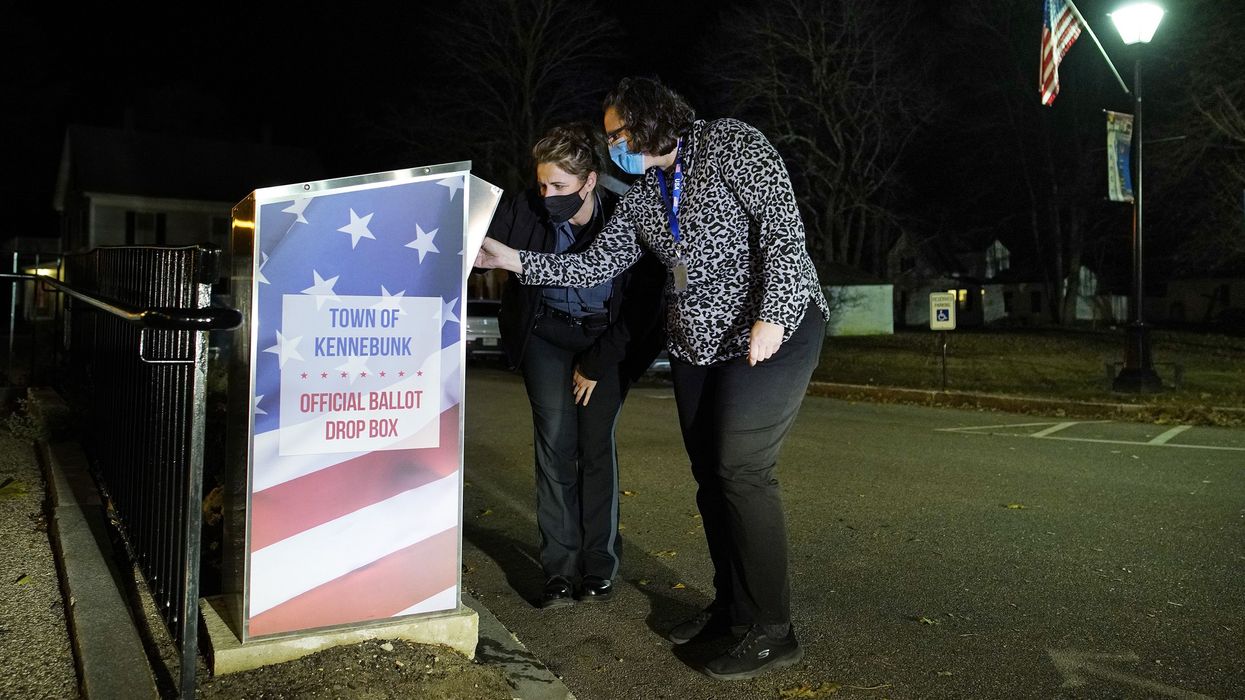March, 04 2013, 01:31pm EDT

CCR Describes to Court Lack of Access to Trial of Bradley Manning in Last Four Months
New Filing Details Absurd Redactions, Vital Documents Withheld, and Orders Being Read in Court at Top Speed with No Transcript Provided
WASHINGTON
As part of its ongoing lawsuit to force public access to documents in the court-martial of PFC Bradley Manning, Center for Constitutional Rights v. United States, CCR today filed a supplemental declaration from Kevin Gosztola, a journalist who has been covering the proceedings and a plaintiff in the lawsuit. The declaration describes the continuing problems journalists have had covering the proceedings in the four months since final arguments were made in the case before the Court of Appeals for the Armed Forces, the military's highest appeals court, which has not yet issued a ruling. The declaration also describes problems with the batch of court orders finally released by the Army last week in response to a number of Freedom of Information Act (FOIA) requests from the media and pressure from CCR's lawsuit.
The declaration notes that the court-martial's rulings continue to be announced not by providing the press with a written order, but by the judge reading her orders out loud. According to those present, she spent two hours straight reading one decision last week, speaking at 180 words per minute as journalists trying to write about the decision that evening were forced to frantically take notes.
Said CCR President Emeritus Michael Ratner, "Some of the lengths to which the military has gone to prevent journalists and the public from following the trial of one of the greatest whistleblowers in our nation's history have bordered on the absurd. The entire arrangement could not be better calculated to diminish media coverage of Private Manning's case."
Despite the FOIA release last Wednesday of 84 of the trial court's orders, most of the parties' briefs have still not been released - over 400 other documents - nor have transcripts of the arguments in court been released. More important, as the case goes forward there is no indication that the trial court intends to let journalists have access to motions before they are argued in court, or to the judge's orders as they are released and while they are still newsworthy.
The Army did not release two significant recent orders: the judge's ruling, seven weeks ago, finding that Manning was unlawfully held in harsh conditions of confinement and granting him a sentence reduction, and the speedy trial order that the judge read out loud last week at top speed
The versions of the documents that were released contain redactions attorneys characterized as ridiculous - for example, the name of the trial judge is redacted from all 84 documents. In one document, information helpful to Manning's defense that was freely discussed several months ago in open court - the fact that the Apache gunship videos were not classified at the time of their release - is blacked out entirely.
Continued Ratner, "The last four months have simply served to reemphasize the urgent need for the Court of Appeals for the Armed Forces to rule that ordinary First Amendment standards for public access to trials - the same rules that apply in non-military criminal trials - should apply to court-martials as well."
A ruling would apply not only to Manning's case but to a number of upcoming military trials that are likely to draw widespread media attention, including those of accused Ft. Hood shooter Nidal Hasan, and of Robert Bales, accused of massacring 16 Afghan civilians outside Kandahar.
For more information, visit the Center for Constitutional Rights v. United States case page.
Jonathan Hafetz, a professor at Seton Hall Law School, is co-counsel on the case.
The Center for Constitutional Rights is dedicated to advancing and protecting the rights guaranteed by the United States Constitution and the Universal Declaration of Human Rights. CCR is committed to the creative use of law as a positive force for social change.
(212) 614-6464LATEST NEWS
Trump Ripped for 'Absurdly Low' and 'Racist' Refugee Cap Prioritizing White South Africans
"Let's call this what it is—white supremacy disguised as refugee policy," said the head of the Haitian Bridge Alliance.
Oct 30, 2025
After months of reporting, President Donald Trump's administration on Thursday officially announced that it is restricting the number of refugees for this fiscal year to 7,500, with most spots going to white South Africans—a policy swiftly denounced by human rights advocates and Democrats in Congress.
"This decision doesn't just lower the refugee admissions ceiling. It lowers our moral standing," said Krish O'Mara Vignarajah, president and CEO of Global Refuge. "For more than four decades, the US refugee program has been a lifeline for families fleeing war, persecution, and repression. At a time of crisis in countries ranging from Afghanistan to Venezuela to Sudan and beyond, concentrating the vast majority of admissions on one group undermines the program's purpose as well as its credibility."
The Trump administration's notice in the Federal Register doesn't mention any groups besides Afrikaners, white descendants of Europeans who subjected South Africa's majority Black population to a system of apartheid for decades. Multiple rich Trump backers—including Tesla CEO Elon Musk, venture capitalist David Sacks, and Palantir founder Peter Thiel—spent time in the country during those years.
The 7,500 cap, initially reported earlier this month, is a significant drop from both the 40,000 limit that was previously reported as under consideration by the Republican administration, and the more than 100,000 allowed under former Democratic President Joe Biden.
Four congressional Democrats who serve as ranking members on related committees—Reps. Jamie Raskin (Md.) and Pramila Jayapal (Wash.), along with Sens. Dick Durbin (Ill.) and Alex Padilla (Calif.)—issued a joint statement condemning the new cap, which they noted is "an astonishing 94% cut over last year and the lowest level in our nation's history."
"To add insult to injury, the administration is skipping over the tens of thousands of refugees who have been waiting in line for years in dire circumstances to come to the United States, and it is instead prioritizing a single privileged racial group—white South African Afrikaners—for these severely limited slots," they said. "This bizarre presidential determination is not only morally indefensible, it is illegal and invalid."
The four lawmakers continued:
The administration has brazenly ignored the statutory requirement to consult with the House and Senate Judiciary Committees before setting the annual refugee admissions ceiling. That process exists to ensure that decisions of such great consequence reflect our nation's values, our humanitarian commitments, and the rule of law, not the racial preferences or political whims of any one president.
The reason for this evasion is evident: The administration knows it cannot defend its egregious policy before Congress or the American people. While nearly 130,000 vetted, approved refugees—men, women, and children fleeing persecution and violence—wait in limbo after being promised a chance at safety, Donald Trump is looking to turn refugee admissions into another political giveaway for his pet projects and infatuations.
We reject this announcement as both unlawful and contrary to America's longstanding commitment to offer refuge to the persecuted. To twist our refugee policy into a partisan straightjacket is to betray both our legal obligations and our moral identity as a nation.
"Let's call this what it is—white supremacy disguised as refugee policy," declared Guerline Jozef, executive director of Haitian Bridge Alliance. "At a time when Black refugees from Haiti, Sudan, the Congo, and Cameroon are drowning at sea, languishing in detention, or being deported to death, the US government has decided to open its arms to those who already enjoy global privilege. This is not just immoral—it's anti-Blackness codified into federal policy."
This week alone, Hurricane Melissa killed more than 20 people in Haiti, and health officials said that the Rapid Support Forces, which are fighting against Sudan's government, killed over 1,500 people—including more than 460 systematically slaughtered at a maternity hospital—in the city of el-Fasher.
"We reject the idea that whiteness equates to worthiness," Jozef said of Trump's new refugee plan. She also took aim at the president's broader anti-immigrant policy, which has included deporting hundreds of people to El Salvador's so-called Terrorism Confinement Center (CECOT).
"From Del Rio to Lampedusa, Black migrants and other immigrants of color have been criminalized, beaten, caged, and disappeared in CECOT camp in El Salvador—while their humanity is debated like a policy variable," she said. "This moment demands our humanity, our resistance, not silence."
Amy Fischer, Amnesty International USA's director for refugee and migrant rights, also tied Thursday's announcement to the broader agenda of the president—who, during his first term, faced global condemnation for policies including the forcible separation of families at the southern border.
"Setting this cap at such an absurdly low number and prioritizing white Afrikaners is a racist move that will turn the US's back on tens of thousands of people around the world who are fleeing persecution, violence, and human rights abuses," said Fischer. "Refugees have a human right to protection, and the international community—including the United States—has a responsibility to uphold that right."
"This announcement is yet another attack by the Trump administration on refugees and immigrants, showing disregard for international systems meant to protect human rights," she added. "The Trump administration must reverse course and ensure a fair, humane, and rights-based refugee admissions determination."
The announcement came just days after Trump's nominee to be ambassador to South Africa, far-right media critic Brent Bozell, faced intense criticism for refusing to say whether he would support or oppose repealing laws allowing Black Americans to vote during his Senate confirmation hearing.
Keep ReadingShow Less
North Carolina GOP Official Uses 'Connections With the Trump Admin' to Threaten ProPublica Journalist
“I’m sure you’re aware of our connections with the Trump administration,” said the North Carolina GOP's communications director. “I would strongly suggest dropping this story.”
Oct 30, 2025
Republican Party officials are now using their "connections" to the Trump administration to threaten journalists into dropping critical coverage.
That's what Doug Bock Clark, a reporter for ProPublica, recently discovered as he worked on a feature-length story on the rise of Paul Newby, the Republican chief justice of North Carolina's Supreme Court, who has become one of the most quietly influential jurists in the nation.
The piece published Thursday examines how Newby, a born-again Christian who was elected to the bench in 2004, believes he was called by God to exact what he calls "biblical justice."
Over the past two decades, Clark wrote that Newby has "turned his perch atop North Carolina’s Supreme Court into an instrument of political power" and "driven changes that have reverberated well beyond the borders of his state."
Newby's most significant contribution has been the landmark decision that legalized partisan gerrymandering in North Carolina, a state that had long had some of the strongest laws in the country against partisan redistricting.
The change led the state's Republican-controlled Legislature to draw up wildly slanted maps that netted the GOP an additional six seats in the US House of Representatives in 2024, handing the party a national trifecta at the beginning of President Donald Trump's second term, which has allowed him to wield extraordinary power almost totally free of oversight from Congress.
It's just one of the ways, Clark said, that "Newby has provided a blueprint for conservatives to seize most of the nation’s state supreme courts, which have increasingly become the final word on abortion rights, LGBTQ+ rights and voting rights."
The report drew from more than 70 interviews with those who know Newby professionally and personally. But he was unable to get in contact with Newby himself.
"I reached out to Newby multiple times during the course of my reporting and was even escorted out of a judicial conference while trying to interview him," Clark wrote on social media. "The court’s communications director and media team also didn’t respond to detailed questions."
When Clark attempted to contact Newby's daughter for comment, he instead received an ominous message from that aforementioned communications director, Matt Mercer.
Mercer ranted that ProPublica was waging a “jihad” against “NC Republicans,” which would “not be met with dignifying any comments whatsoever.”
He continued: “I’m sure you’re aware of our connections with the Trump administration, and I’m sure they would be interested in this matter. I would strongly suggest dropping this story.”
As Clark pointed out, "He bolded and underlined 'strongly,' in case we missed his point."
After the story, which made note of Mercer's threat, was published, Mercer then doubled down on social media, urging Trump to "feed ProPublica to the USAID wood chipper," referencing the president's near-total stripping of funds from the foreign aid agency.
Trump has issued an executive order slashing federal funds for media organizations supported by the Corporation for Public Broadcasting, like NPR and PBS, in response to critical coverage of his administration. But it's not entirely clear how he would actually go about doing such a thing to ProPublica, which does not receive government dollars but instead subsists on private grants and donations.
At any rate, Mercer's messages were widely perceived as a not-so-veiled attempt to coerce ProPublica into ceasing its inquiries.
Travis Fain, a freelance reporter who previously worked for Raleigh's NBC News affiliate, WRAL, expressed disbelief at Mercer's belligerence on social media: "Well, there you go," he said. "The North Carolina Republican Party officially threatens journalists now."
Wiley Nickel, the former Democratic US House representative for North Carolina's 13th District, lamented that it was "not normal" for a party official to "threaten ProPublica with retaliation from Trump" for writing a profile about another GOP official.
Despite the threats, Clark says "ProPublica persisted" with the story that Mercer "warned [it] not to tell."
"I'm always amazed when grown-ups with jobs say things like this to journalists," said Jessica Huseman, a former ProPublica reporter. "Like, do you think that's gonna do anything but make us more eager to publish the story?"
Keep ReadingShow Less
Platner Mobilizes Mainers to Fight Billionaire-Funded Attack on Absentee Voting
"Right-wing billionaire Leonard Leo is pouring money into Question 1, which would shred absentee voting in Maine. But our movement is fighting back."
Oct 30, 2025
Graham Platner isn't on the ballot until next year, but while campaigning across Maine for the June Democratic primary, the US Senate candidate is rallying opposition to Question 1, which state voters are set to decide on in Tuesday's election.
If approved, the ballot measure would "eliminate two days of absentee voting, prohibit requests for absentee ballots by phone or family members, end ongoing absentee voter status for seniors and people with disabilities, ban prepaid postage on absentee ballot return envelopes, limit the number of drop boxes, require voters to show certain photo ID before voting, and make other changes" to state elections.
Platner is running against multiple Democrats, including term-limited Gov. Janet Mills, for the opportunity to try to oust longtime Republican Sen. Susan Collins by railing against the oligarchy and prioritizing the needs of the working class. On Thursday, he released a 30-second animated advertisement against Question 1.
"I work on the water, so November can be a very busy time of year for me," Platner, a military veteran who now works as an oyster farmer and harbormaster, explains in the ad. "That's why sometimes, I vote absentee."
Platner then takes aim at Leonard Leo, an island-dwelling "right-wing billionaire" spending big on Question 1. The candidate didn't name Leo in the ad, but made clear in a related social media post that he was the target.
As Maurice T. Cunningham, a retired politics professor who authored Dark Money and the Politics of School Privatization, wrote for CentralMaine.com earlier this month, "Concealed behind layers of dark money fronts funding Question 1 are the far-right billionaires and Christian nationalists who fueled the rise of President Donald Trump and MAGA." Among them is Leo, the lawyer and activist who masterminded Trump's effort to shift the federal judiciary to the right. He has a house on Mount Desert Island, known for Acadia National Park and Bar Harbor.
"He wants to make it harder for students to vote, for members of our tribes to vote, harder for those who serve our country. Question 1 will make it harder for all of us to vote," Platner warns in the ad. "Don't let a right-wing billionaire on Mount Desert Island screw up absentee voting in Maine. Vote no on Question 1."
As the Maine People's Alliance Beacon reported Thursday, "Platner will also host a 'Save Absentee Voting' concert and rally featuring Griffin William Sherry and The Ballroom Thieves in Portland on Sunday, November 2 at 1:00 pm at the State Theatre."
Last year, more than 370,000 Mainers sent in absentee ballots. This year, early voter turnout "is outpacing the last off-year election," with over 76,000 voters having turned in ballots as of Tuesday afternoon, according to the Maine Morning Star.
Organizations from across Maine "who believe that fair, open, and accessible elections are the cornerstone of our democracy" have come together to form the Save Maine Absentee Voting Coalition. They include the state chapters of the ACLU, AFL-CIO, and League of Women Voters as well as Maine Conservation Voters, Maine Education Association, Maine Equal Justice, Maine People's Alliance, Natural Resources Council of Maine, Planned Parenthood Maine Action Fund, and more.
"This measure isn't right for Maine," says the coalition's website. "We all want our elections to be as secure as possible. Instead of making it harder for Maine citizens to vote and tying the hands of our town clerks, we should focus on giving state and local elections officials the resources they need."
Keep ReadingShow Less
Most Popular


